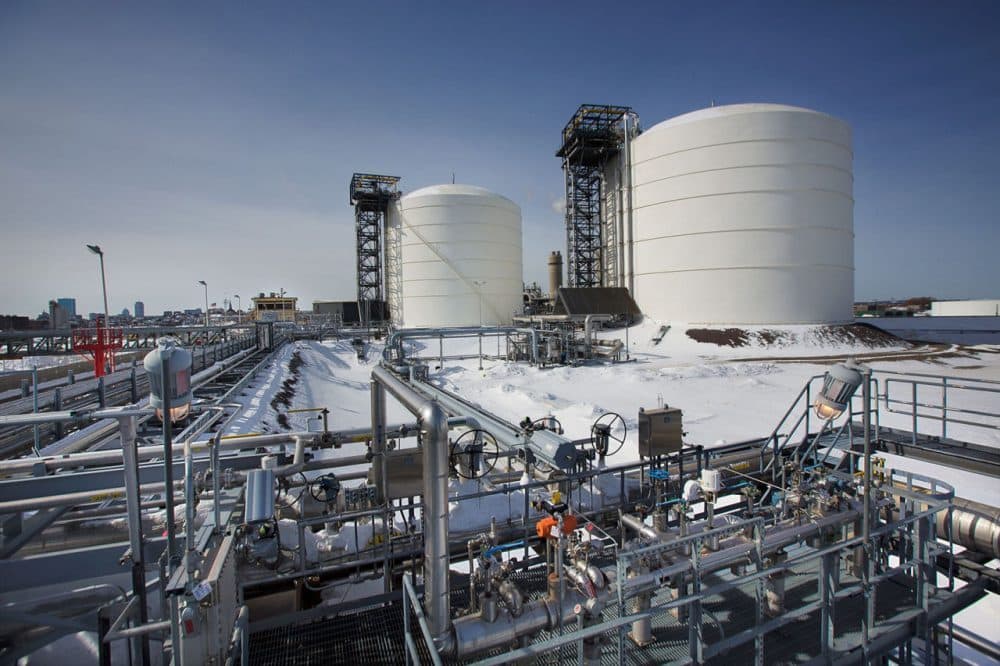Advertisement
2 Major Utilities Backing Pipeline Project Back Out

A proposed natural gas pipeline through southern Massachusetts increasingly looks like a pipe dream. Two major utilities that were supporting the project have now officially backed out of their current contract for the pipeline.
The gas and electric utilities Eversource and National Grid had teamed up with pipeline company Spectra Energy to construct Access Northeast. The pipeline would have enlarged, expanded and upgraded the existing transmission line coming in through Rhode Island — carrying nearly a billion cubic feet of natural gas a day and adding two enormous liquid natural gas (LNG) storage tanks in Acushnet.
The companies say the pipeline would have saved consumers a billion dollars a year and more — mostly in winter when demand for gas is highest and pipeline capacity constrained.
But the pipeline consortium wanted ratepayers to foot the $3 billion upfront construction costs. Last week, Massachusetts' Supreme Judicial Court ruled the finance scheme violated state law — and now, the utilities have officially withdrawn the project from the regulatory process.
"This does not mean the project is dead," Amie O'Hearn, spokesperson for National Grid, said. "This means that it is just a setback for the project as far as we are concerned."
In prepared statements, the utilities say the the high court's decision was not a judgement on the benefits of the project.
"Right now what we're doing is we're reconvening and thinking how and if we can go forward with the pipeline," O'Hearn said.
Attorney Caitlin Peale Sloan, who is with the Conservation Law Foundation, said: "This is a pretty huge deal." The Boston-based organization led the legal battle against the proposed pipeline.
Sloan says ratepayers would have borne the financial liability if the Access Northeast project went south.
"And now that the Supreme Judicial Court says they can't do that, they're pulling the plug because it's too risky for themselves to fund," Sloan said.
Neither National Grid nor Eversource would say they'd finance the pipeline themselves.
Roger Cabral, of Acushnet, is with South Coast Neighbors United, a group formed to oppose the pipeline project.
Advertisement
"We're cautiously optimistic, but we're hoping this is the end of Access Northeast," he said.
The utilities had planned to build two LNG tanks in Acushnet. They'd be the largest on the East Coast storing liquid natural gas.
"They wanted to build that in a residential neighborhood, in an area surrounded by homes and hospitals and schools and children — and wildlife is important and wetlands are important," he said. "And they were just going to bypass all of that."
But supporters of the Access Northeast pipeline say if the region had enough natural gas to burn in the frigid winter of 2013 instead of coal and oil, it would have saved annual greenhouse gas emissions equal to 625,000 cars. But for now, the cost benefits are moot.
The proposed pipeline, if not dead and buried, is most definitely dormant.
This segment aired on August 23, 2016.
